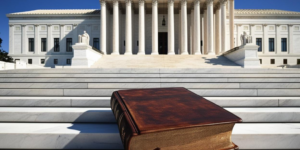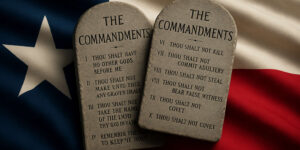Alcohol Abuse, Perry Noble, and the Church’s Response—What Now?
By now, you’ve probably read that Perry Noble is no longer the pastor at NewSpring Church.
The Greenville Online newspaper explained:
The Rev. Perry Noble, who started NewSpring Church nearly 20 years ago, is no longer its senior pastor.
Early in Sunday’s 9:15 a.m. service, Executive Pastor Shane Duffey announced that Noble had been removed as pastor on July 1 … after Noble “had made unfortunate choices,” and that the board members had confronted Noble on numerous occasions regarding his use of alcohol.
I don’t know what the “unfortunate choices” are and won’t speculate. I grew up around alcoholism, though, and there were plenty of those “unfortunate choices” that were connected to alcohol.
But, I do want to stop and think about the one detail that NewSpring has been clear about: alcohol issues and pastoral ministry, and, though we don’t know all the details here, I’ll include a bit about the struggle of alcoholism in Christian ministry.
Obviously, the view of many Christians has changed toward alcohol. A few years ago I shared an a bit on the change. Here are some excerpts:
It appears that views of alcohol are changing among some evangelicals.
Now, many conservative evangelicals have been moderationists for a long time—so an anti-alcohol sentiment is not universal among evangelicals. Sometimes observers will see “Northern Evangelicalism” as moderationist, with “Southern Evangelicalism” being abstentionists, and there is a good amount of truth in that geographic reality. However, it is still a bit more complicated since Wesleyans, for example, are concentrated up North, and you cannot be a covenant member of a Wesleyan church if you use alcohol as a beverage.
But, with that new openness comes an old danger— alcohol abuse and alcoholism. And, I don’t believe that those newly discovering this liberty toward alcohol are prepared for this new danger.
It’s not a secret that I don’t drink beverage alcohol. Part of that comes from a heritage of alcoholism that inspires this post. I’ve seen it up close and know alcoholism’s destructive power—yet, many evangelicals have not. But, more evangelicals may be exposed to the destructiveness of alcoholism if acceptance grows.
In other words, Lutherans and Anglicans are more accustomed to dealing with the dangers of alcohol addiction, while some evangelicals are not. But, if this trend continues, they are going to have to be. If you go to a recovery group meeting, you would not be surprised to see a Lutheran in a collar; you’d be very surprised to see an evangelical pastor in skinny jeans.
In a few years, it may no longer be surprising.
The above article included an interview with a southern evangelical pastor at a well-known church. Here were a few of the questions and his answers:
Tell us how you viewed alcohol and how those views changed over time.
I grew up in the South. I was taught that alcohol was “of the devil” but tobacco was a gift from God.
My family didn’t drink. I never had alcohol until college—never partied much there. I discovered in graduate school that it was good for “relaxing.” I was around a lot of folks who seemed to use too much of it, and that bothered me … Later, I planted a church that grew very quickly—a glass of wine became the way to relax in the evening.
How could you tell (and when did you realize) you had a problem?
Alcohol became more of a need than a want. As success and stress increased, the need for it to “relax” become more of a habit than an occasional thing. I started to hide it from family. I made promises to never drink during “work time,” which of course, began to shrink.
My family and a couple of my staff expressed concern in a loving way, but I said I could “handle it” (major flag!).
What is unique about being an alcoholic evangelical pastor?
Never thought it would happen to me, and most evangelicals view any form of alcohol as evil to begin with. However, that attitude has changed somewhat, and most of the “church folks” I know drink socially. However, I had a temperament/physical make up that didn’t allow me to do that.
Simply put, my friend found that an openness to alcohol combined with a propensity to addiction, in a culture that hides drinking, is a dangerous combination.
Instead, evangelicals must start dealing with addiction in both an honest way and a redemptive way. Those who are beginning to hold a more open position on the consumption of alcohol should be careful that in their quickness to embrace freedom and liberty, they are not ignoring dangers and even blind to how this can hurt the opportunity to reach our neighbors. D.L. Mayfield wrote a Christianity Today cover story that addressed this very issue. In that article she wrote this convicting sentence: “With every picture, tweet, and event that centers on alcohol, I wonder: Isn’t anyone friends with alcoholics?“
But on the other side of the issue, even those who have long held a position against any consumption of alcohol at all must start addressing addiction in a way that is more open and transparent. After all, the gospel we proclaim is exactly what brings the freedom we long for, and it should mean that we don’t have to hide anymore.
Recently, in Relevant Magazine Zach Perkins explained:
At AA meetings and therapy sessions, talking about addiction makes sense, but for some reason, it’s not a topic most church people want to hear about. Certain addictions are definitely more socially acceptable to talk about than others. For example, it’s OK to bug Frank about his smoking, but John’s alcoholism is more hush-hush.
And yes, in many churches, a person’s addictions can become fodder for gossip. However, if the church were to first approach one another as family, then addicts in the church might feel safer to be vulnerable about their struggles. Often, they just need to be loved and feel safe enough to know they can expose this part of themselves in a community where the addiction isn’t crushing them every second.
Now, I don’t know all of the story, but Perry is my friend, has been my friend for some time, and will continue to be my friend. And, yes, I have reached out to him, and I love and pray for him.
But, there are things for all of us to consider in this moment, so let me encourage all of us to remember these three things.
1. Perry Noble did not have an alcohol problem because he did things that upset some Christians.
Lots of pastors—innovative, contemporary, traditional, and liturgical—have struggled with alcohol. The Bible says that “wine is a mocker and strong drink a brawler” (Proverbs 20:1).
Let’s pray and weep because alcohol mocked again, and let’s not feel the need to join in that mocking. The world will do that enough.
2. Perry needs your prayers, not your “I told you so.”
I get that Perry’s approach to ministry has—at times—been a lightning rod, and I’ve discussed that with him, but this is not the time for such comments or speculation.
His church and his pastors will sort out the details, and we should trust the Lord in His guidance of that process. They don’t need any of us being armchair pastors, speculating on how we think this happened or what we think they should do.
We have one role right now as fellow Christians, and for many of us, as fellow pastors. That role is to pray.
Please join me in praying for Perry, Lucretia, their children, and NewSpring—let that be your focus.
(Quick update: since posting this artice, Perry and I have talked and he is getting help from a psychiatrist and is taking steps to address his alcohol dependence.)
3. You do not need to struggle alone.
If you are a pastor struggling with alcohol or any other addiction, you don’t have to struggle alone. There are ministries and resources like Recovering Redemption, Celebrate Recovery, Alcoholics Anonymous, and more.
If you need someone to contact you personally, send us an email at pastors@lifeway.com and Mark Dance, who leads our efforts with pastors, will get you in touch with someone who can help. (You can also use the LifeWay Pastors contact page.) Your name will be kept confidential and pastors of all denominations (and none) are welcome.
Or, if you prefer not to even share that information, call the Focus on the Family Pastor Care Line 844-4PASTOR.
You don’t have to suffer alone and it won’t end well if you don’t get help. You do not have to hide. Alcohol isn’t freedom, and hiding isn’t the way out. We can stand together in the power of the gospel and see the way forward in hope.






































